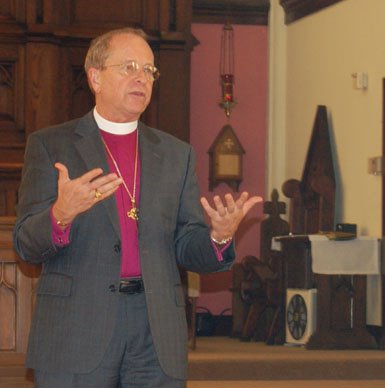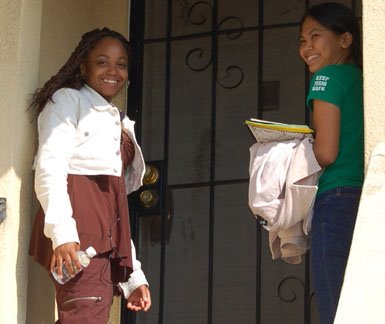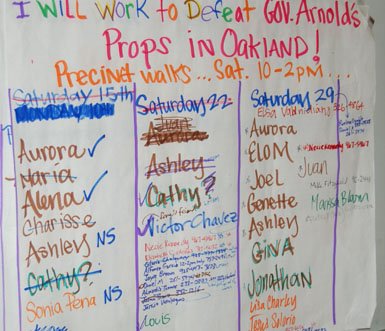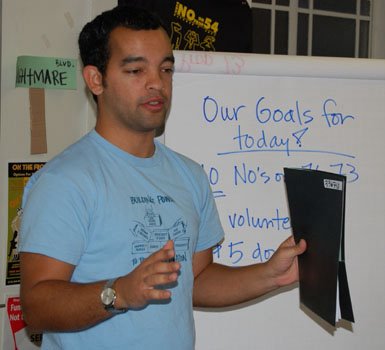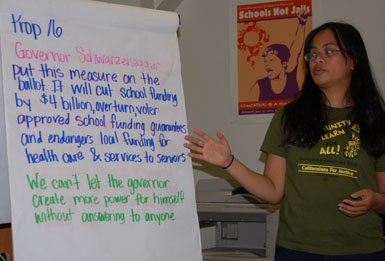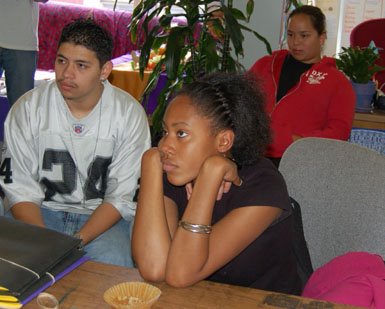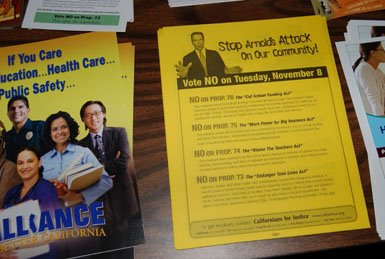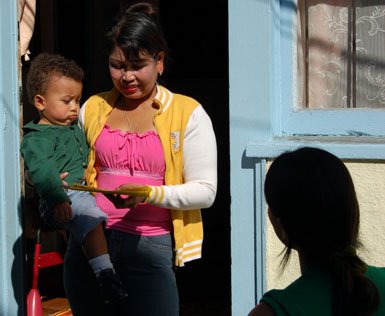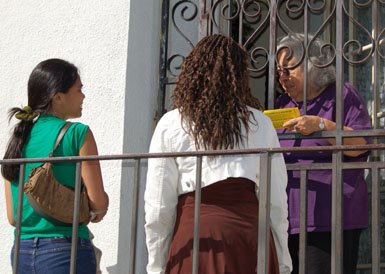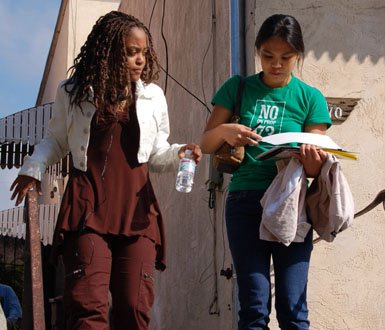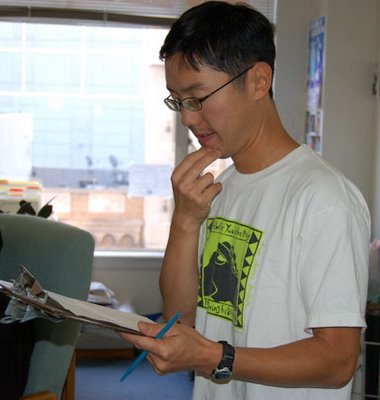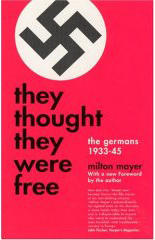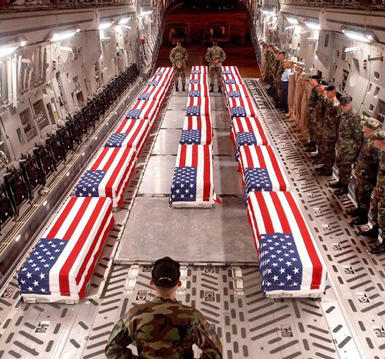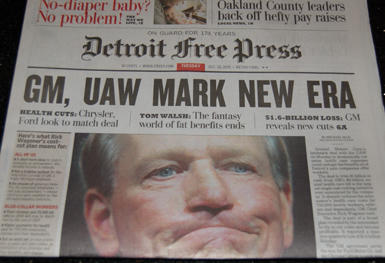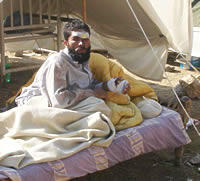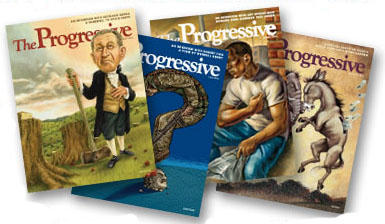 DC view
DC viewThe view out the window was often the same: derricks raising virtually identical new concrete and steel buildings. Clearly there are parts of this economy that are booming. If you spend your life in this bubble, you barely see the other parts, which may explain why the devastated Black New Orleans was such a shock and even why we re-elected President Nincompoop.
What follows are some completely personal and probably ignorant observations mostly from second class business hotels while traveling for work:
 Baltimore Inner Harbor:
Baltimore Inner Harbor: a boom town of rather conventional tourist attractions including a Hard Rock Café in a former brick power generating station. Last summer I saw a modern mall in the Monteflores section of Lima, Peru; I'm not sure a deaf visitor from another planet could tell the difference from this one in Baltimore. Perhaps the monster painted crabs are what distinguish the Maryland city.
Washington, DC, 12th and K Streets: more construction -- and a 7 AM picket line outside protesting the use of non-union construction labor. Here, as in Baltimore, it was impossible to walk a block from the hotel without running into a sidewalk diverted into the street for construction. L'Enfant's wide boulevards do make DC a city in which traffic moves comparatively well; all the construction impediments seem minimally disruptive.
Chicago: Medical District Marriott: No derricks here, just lovely yellow and gold autumn leaves. I'm enough of a Californian to forget that this is what we should expect from deciduous trees in October. Construction however is going strong here as well -- on the highway system. It took me an hour to get out of the city because of roadwork.
On the road across Indiana and Michigan: this was great day to be part of middle-American culture, stuck in traffic with Notre Dame football fans (and a smattering of USC boosters in stretch limos) on the way to South Bend; then fighting my way through Ann Arbor just as Michigan kicked off against Penn State.
Detroit Renaissance Center: Surrealistic glass and steel hotel and office building, 80 stories high, General Motors' headquarters, across the river from a Windsor, Ontario casino. The tunnel under the Detroit River from Canada surfaces here. The only reason I don't see a construction crane out the window is that my view is limited to the river; nextdoor one rises from an empty lot.
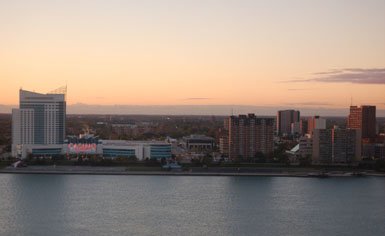
It took me about an hour and a half to get into this city, thanks to repairs on Interstate 96. The time spent on surface streets showed the classic devastation I expect in rustbelt African American areas: boarded up storefronts in tired looking two story brick buildings; streets empty except around liquor stores; stagnation and sadness. Oh and a couple of monumental megachurches -- those pastors build, whatever else they do.
The downtown is absolutely dead; nothing open on weekends, and though thousands must be employed in these glittering towers, no small business that would serve the weekday workers either. Renaissance Center is an epic monument to failed city planning. The hotel echoes the general failure in ways that are almost comic: even the coffee pots don't work and room service doesn't answer its phone.
Cleveland, OH, Public Square: after Detroit, downtown Cleveland seems clean and bustling, but I really get a sense of prosperity here when I venture to a suburban shopping mall. They have rich people here. And the Rock and Roll Hall of Fame next to the lake. They also have poor Black residents in the older sections and an astonishing number of cold, gray, sometimes ornate late 19th and early 20th century stone churches. Here's one with a mammoth modern hospital rising next to it.
 Cincinnati, OH:
Cincinnati, OH: Another downtown that has lost its work-a-day reasons for being and seeks to live off conventions and sports. In contrast to Detroit though, it seemed at least that weekend to succeed: the Pittsburgh Steelers were in town to play the Cincinnati Bengals and their fans with them. There were some awfully deflated local tigers when when their champions faltered badly. In autumn, all depends on football?
 Louisville, KY:
Louisville, KY: Another downtown hoping for tourists, but somehow, though smaller, seeming more healthy than Cincinnati. An old waterfront street is being rehabbed as an arts district. The incoming tourists for the week were thousands of high school aged Future Farmers of America giving the place young life. Or perhaps I was just influenced by the extraordinary sunrise I glimpsed over a modern bit of skyline.

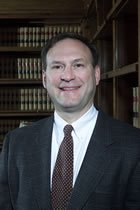 Let's see, the Preznit just appointed to the Supreme Court a guy who, according to Think Progress:
Let's see, the Preznit just appointed to the Supreme Court a guy who, according to Think Progress: 